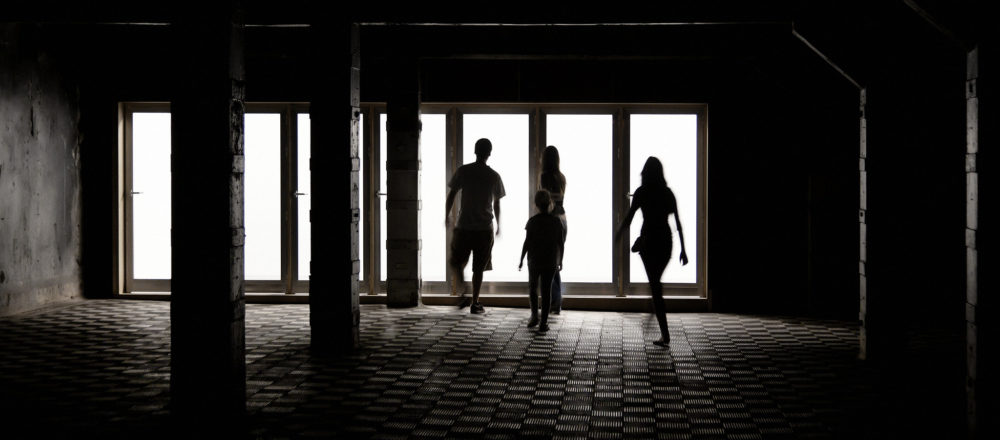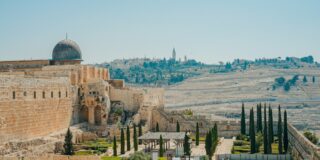Janelle Koh: Kate, you’re a writer, feminist, queer activist and radio journalist. Can you tell us a bit about your background of involvement with human rights?
Kate Jessica Raphael: I grew up in the American South, and I was born during the era of formal segregation, although the Civil Rights movement was already underway. The public schools were desegregated by court order when I was going into sixth grade. Black and white students were legally equal, but I could see that in practice, we did not have the same opportunities. My parents were involved in some (mostly unsuccessful) efforts to desegregate housing. As a family, we supported labor struggles, like the farm workers’ boycott of grapes and lettuce. So I have always felt a responsibility to work towards human rights and justice.
You’ve written two crime novels, Murder Under the Bridge and its sequel, Murder Under the Fig Tree, both of which canvass human rights issues – the Israel-Palestine conflict; queer and feminist issues, among others. Was it important to you to explore these issues through your crime fiction?
I spent two years in Palestine, working with the International Women’s Peace Service, comprising mainly U.S. and European women. We supported Palestinians in nonviolent resistance to Israeli military occupation, and also in everyday activities like olive picking, or just trying to get through checkpoints. Palestinians opened their homes to us, gave us the best of everything they had, and they asked us to go home and tell people what was happening. I was looking for a way to reach people who might not follow the news coverage that much, or be drawn to pick up a straightforward book about Israel and Palestine. I enjoy crime fiction and had long wanted to write it, and I thought the situation in Palestine, where everyday activities are so fraught with tension and danger, lent itself to that genre.
One night I witnessed a scene–a car seemed to be abandoned on a settler highway that runs above a Palestinian road–and I thought, “That would be a great beginning for a mystery.” That’s how Murder Under the Bridge was conceived.
When I sat down to write, the first character who came into my mind was a Palestinian policewoman. There were not many policewomen in the part of Palestine where I lived, so I knew that a woman detective there would have to be a feminist. She would have to be very willing to face judgment from her neighbors, and maybe some hostility from colleagues as well. I drew on a number of women I knew, who had nontraditional jobs or stepped out of expected roles.
One commitment I made to myself many years ago was that I would always have lesbian and gay people in my writing because we are everywhere. But for the most part, I don’t want their sexuality to be the main story. I want it just to be there, in the background, which is how it is for me most of the time.
What of the experience of living in Palestine do you hope to evoke through your books, if any?
The overall feeling of the books—that at any minute, something terrible might happen—is one I carried the whole time I was in Palestine. All the small decisions my characters make every day around what languages to speak, whom they can trust, whether to try to get through the checkpoint legally or sneak around or give up: those are the heart of the books. But I also want people to see that Palestinian life is not only war and abuse. Within the context of occupation, there are romances and music competitions and annoying interactions with coworkers. And lots of food! My Palestinian protagonist, Rania, doesn’t get along with her mother-in-law, and they live in the same house; some days, that is a bigger problem for her than the Israeli army.
The first draft of Murder Under the Bridge had big chunks taken almost verbatim from my journals. That draft was awful! As I revised and rewrote, I moved further from what actually happened. I began to know my characters and think about what they would do. But there are still a number of scenes in the books drawn from real life. Usually, those are the scenes about which readers say, “That would never happen.” This scene from Murder Under the Bridge is taken directly from my experiences.
Do you feel that your work, which is deeply informed by human rights sits comfortably within the genre of crime fiction?
Crime fiction centers around justice, so it is a natural fit for human rights issues. There is a long tradition of books centering around private investigators who have an uneasy relationship with local authorities, or police who uncover corruption within their own departments. Someone like Sara Paretsky has a social issue at the heart of each of her books, whether it’s prison labor or access to health care. My books are specifically within a tradition established by writers like Walter Mosely and Tony Hillerman, whose protagonists have some authority within their own communities but are also trying to protect their communities –African Americans in East Los Angeles, in Mosely’s case, and the Navajo nation in Arizona in Hillerman’s – from the larger authority of, essentially, an occupying power.
One of the reasons I wanted to set a crime novel in Palestine is because there are so many different power structures at work in Palestine. You have the Israeli army and police, but you also have the Palestinian Authority, Israeli civilians – both settlers and peace activists, as well as internationals like me, all of whom who have various kinds of power that they may or may not be aware of; and Palestinian villages have their own social hierarchies, class dynamics, generational and gender politics.
In 2004, I was arrested by the Israeli army and sent to a prison for foreign workers. There, I learned about human trafficking in Israel, which was a huge problem then, of workers from the former Soviet Union, Asia and Africa. I ended up incorporating that issue into Murder Under the Bridge, which added another layer to the story. Trafficking in Israel is a human rights issue that even a lot of Palestine solidarity activists are unaware of.
Did you find it difficult, being from a different culture, to write a character like Rania? Are there cultural and gendered tensions around writing such a character that you had to navigate in writing the books?
Writers always need to ask ourselves, “Do I have a right to tell this story?” Especially as a Jewish American, I don’t want to appropriate or misrepresent the Palestinian narrative. But I also feel a book about Palestine must have Palestinians at the center. Palestinians asked me to tell their stories, and Rania and my other characters are vehicles for fulfilling that promise. My North American protagonist, Chloe, is always walking the line between solidarity and arrogance. She doesn’t always do it well, and neither do I, but I hope readers can tell her intentions are good, and that that encourages them to cut me some slack as well.
Are you working on any upcoming projects? Do you anticipate writing another book for the Palestine Mystery series?
I have a third book outlined; Murder at the Roadblock will be the last one set in Palestine, since the Israelis won’t allow me to go back there. I have planned two more with Rania and Chloe – one is in San Francisco and the other is in Athens, Greece (where I’ve never been, so very much looking forward to doing that research). Right now, though, I am working on a new series about reproductive health access in the United States, which you may know is very much in jeopardy.
What do you hope your readers will take from your books?
I write books I would want to read. I like fast-paced stories with bold, politically astute women leads. I try not to make social change seem too much easier than it is, but one great thing about putting human rights struggles into fiction is that we can win! It’s a more easily controlled environment than the real world. I hope somehow those fictional victories can show us a path for our own movements to succeed as well. I want people to put down my books thinking, “I can do that.”
Editor’s note: An excerpt from Murder Under the Bridge, which illustrates many of the points made by Kate in this interview, is available here.




